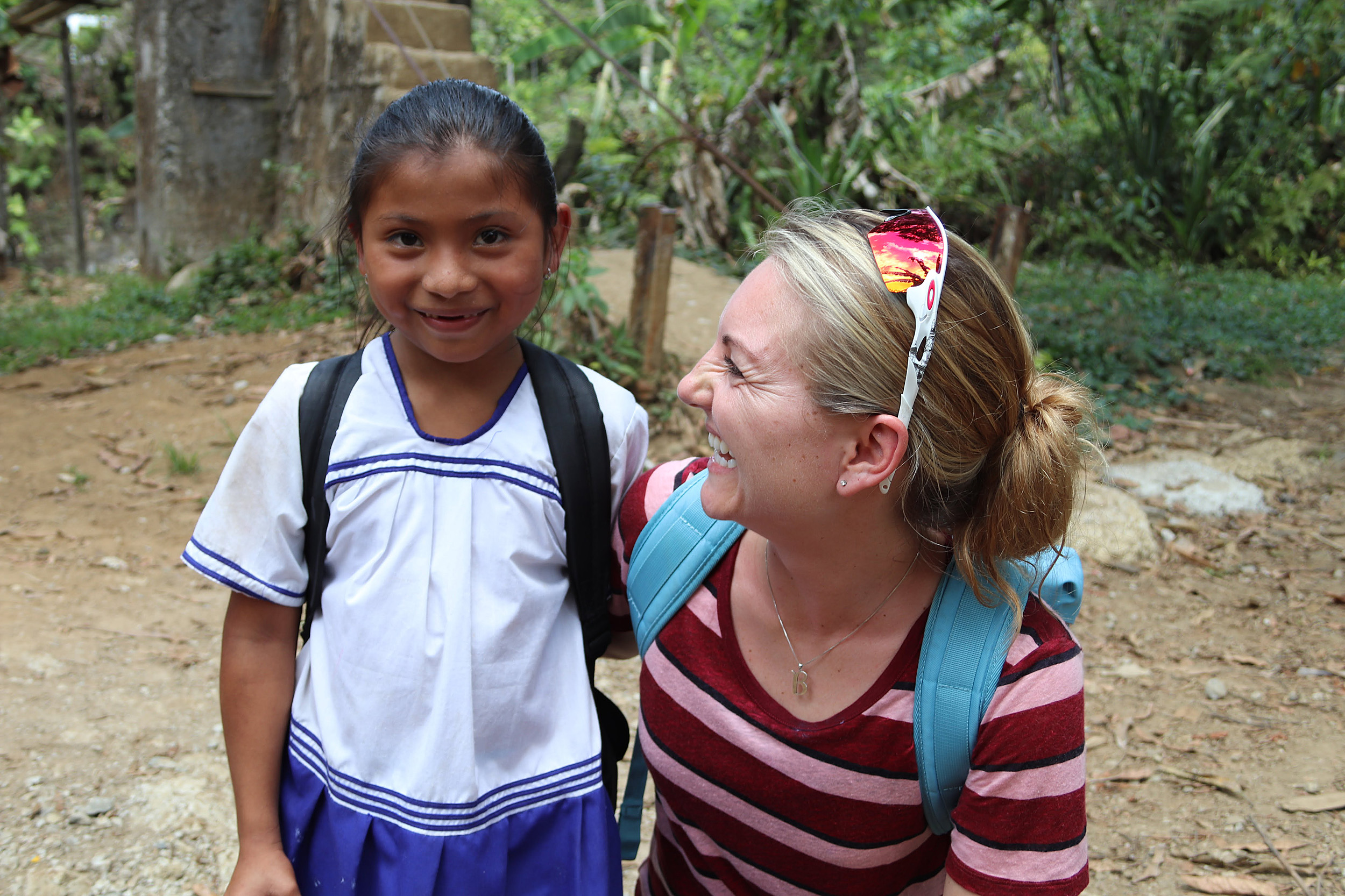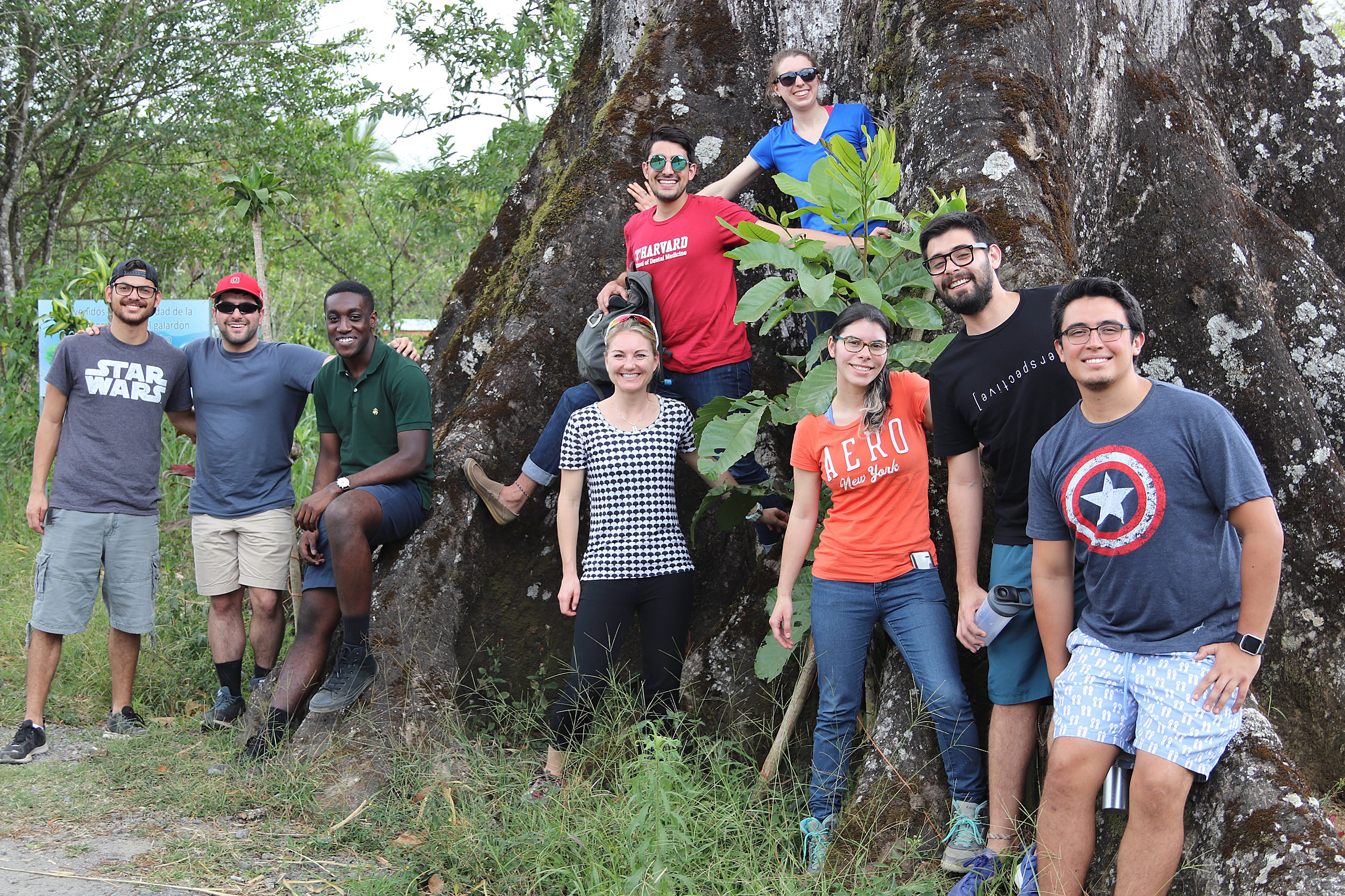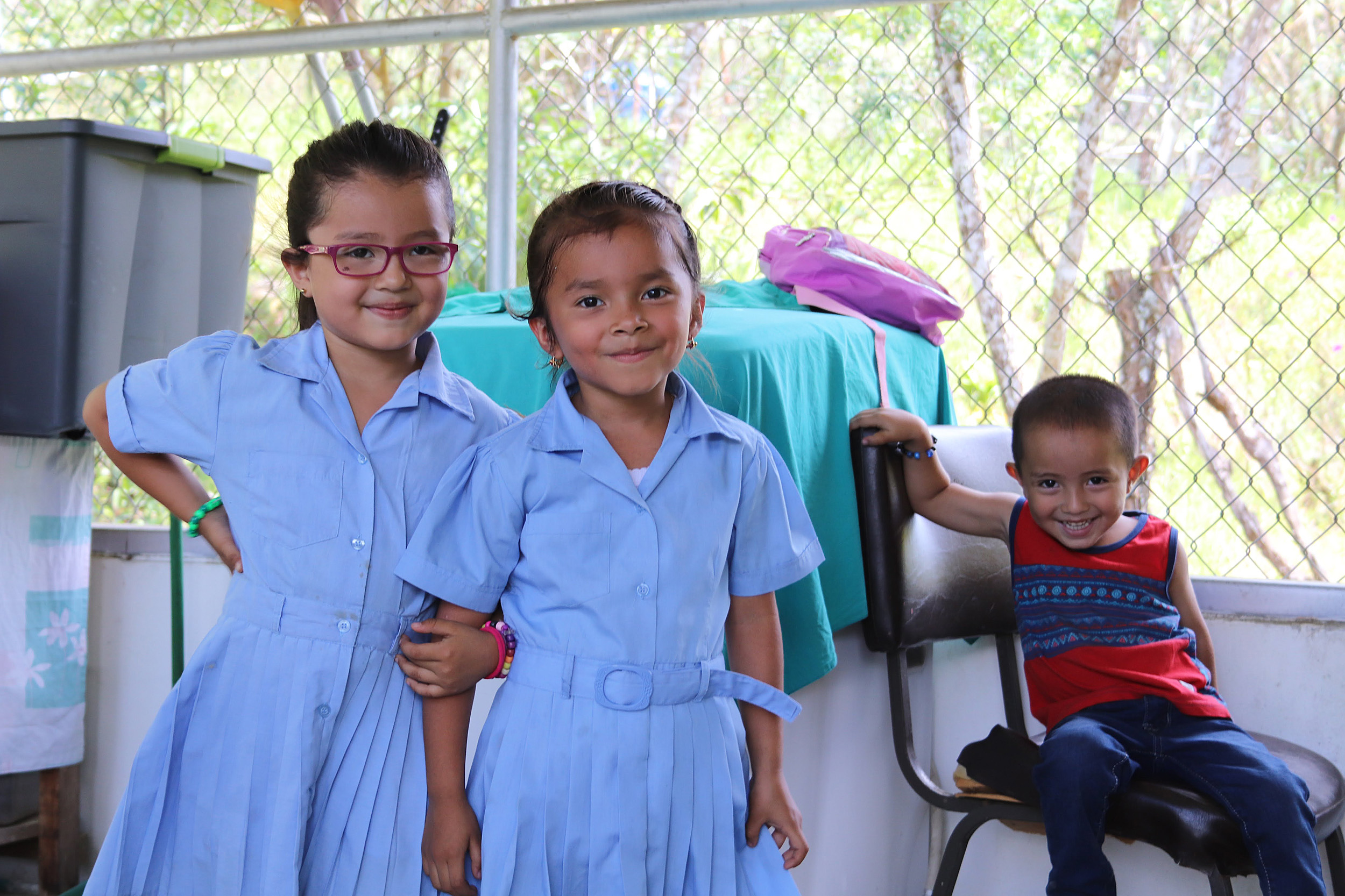
“Some of the most prevalent diseases in the world are oral diseases,” said Brittany Seymour, assistant professor at Harvard School of Dental Medicine, who brought a group of students to Costa Rica as part of her “Principles of Oral Health” course.
Photos by Heather Denny/HSDM
Making global health a collaborative effort
Dental School students take lessons to heart and into the field in Costa Rica
Not all health care is administered by physicians. Not all dental care is received in a reclining white chair. And when it comes to coverage, the U.S. does not always lead the way.
Rather, dental care — like health care — is a global issue, and this year, three Harvard School of Dental Medicine (HSDM) students got a chance to take that lesson both to heart and into the field.
“Some of the most prevalent diseases in the world are oral diseases,” with cavities affecting an estimated 4 billion people worldwide — far more common than cancer, diabetes, and even heart disease, said Brittany Seymour, assistant professor of oral health policy and epidemiology at the HSDM. “At the same time, they are the most neglected.”
Seymour’s “Principles of Oral Health” teaches second-year students about global health and disease. This year, her class had a unique opportunity to take concepts learned in the schoolroom and apply them in the field.
Over spring break, Kristin Sweeney, Ryan Lisann, and David Danesh traveled with Seymour to southern Costa Rica, where they were immersed in a one-week extension course co-developed by Seymour and Carlos Faerron of the Interamerican Center for Global Health (CISG). The class gives students a firsthand look at some of the most pressing challenges in global health, such as the effects of environmental degradation, migrations and changing demographics, and nutritional and epidemiological transitions.
“It’s one thing to learn about topics in the class and be far removed from them, but it’s a totally different thing to have space to dive in and learn about these things for a week, where they are happening,” Sweeney said.

Through interactive workshops and field visits, Sweeney, Lisann, and Danesh learned about oral health care from the perspective of migrant workers in the palm oil fields on the Panama border and indigenous populations in the Ngäbe-Buglé de Coto Brus territory. They spoke with health professionals and community leaders who work to create culturally sensitive care that blends modern medicine with traditional practices.
“You can’t really appreciate what these communities are experiencing without being there and meeting some of the community leaders. One of the biggest takeaways for me is the application of the social determinants of health,” Lisann said.
“There are all these factors that tie into someone’s health status, whether it’s the distance they need to walk to a health center, or traditional cultural practices they learned from a young age that might conflict with Westernized medicine. Getting an idea of all these [determinants] and how they play into everyday health has shaped my perspective on health and medicine,” he added.
Sweeney drew parallels between experiences in Costa Rica and the U.S. “I’ve worked with the Wampanoag community in Martha’s Vineyard,” she said. “The problems they face are often very similar to the problems underserved communities in Costa Rica are facing. There is a serious need to address the lack of care and attention we are giving these communities in the U.S. as well.”
The Harvard students were paired with dental students from the University of Costa Rica. Together they visited rural hospitals and ministries of health and learned about the country’s health systems. Afterward they worked in teams to strategize and create solutions to challenges they saw in the field.
“Through the course I learned how collaborative global health is. Global health is not done in a vacuum. Seeing that firsthand and connecting with the University of Costa Rica dental students, we both learned so much from each other,” said Danesh.


Harvard dental students Kristin Sweeney (left) and Ryan Lisann walk with a young child from the indigenous territory of Ngäbe-Buglé de Coto Brus, Costa Rica. Her home, near the Panama border, is only accessible by foot. Children receive dental care as part of Costa Rica’s universal health care system.
Unlike in the U.S., Costa Rica’s universal health care system includes dental care as an integral part of medical coverage. Additionally, in Costa Rica oral health records are included in patient’s medical files, while in the U.S. they are kept separate.
“I was blown away by the Costa Rican health system. How well organized, how well-planned, how well-intentioned, how well-thought out the entire health system is really impressed me,” Danesh said.
Danesh is a National Health Service Corps scholar whose dental education is being funded by the Health Resources and Services Administration (HRSA). In return, after graduating he will work as a dentist for four years in a medically underserved area of the U.S.
“This experience has definitely affirmed a lot of my goals, motivations, and aspirations, and made me think broader too,” Danesh said. “I have a responsibility to help as many people as I can because there’s so much need out there. We can do better both in the U.S. and globally in improving health care and oral health.”
“The students learned a tremendous amount about the importance of true community partnership and collaboration, and not just what that looks like in theory, what it looks like in action and how challenging it can be.” Seymour said. “They see themselves as global citizens. … I think they’ve gained the perspective that what they learned here not only can benefit communities around the world, but can also be applied to challenges faced at home in the U.S.”
Initial funding for the course was provided by the Abundance Foundation, a nonprofit focused on empowering communities led by Harvard alumnus Stephen Kahn. Building on the success of this year’s course, Seymour hopes to expand it next year and possibly partner with other Harvard Schools to include more students interested in global health.
“To be challenged to think about these topics was really important at this point in my dental training,” said Sweeney. “This week really bolstered my toolbox of questions to ask, and perspectives to think about. It will give me a greater sense of humility and tools to use to hopefully make an impact wherever I am, and to use my dental career to serve others.”






